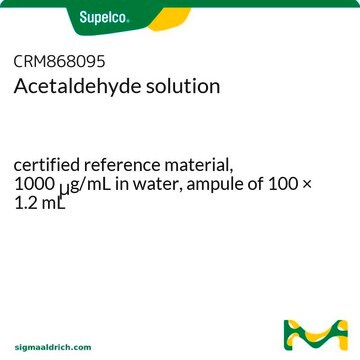103128
2-Methyl-3-heptanone
99%
Synonym(s):
Butyl isopropyl ketone
Sign Into View Organizational & Contract Pricing
All Photos(1)
About This Item
Linear Formula:
CH3(CH2)3COCH(CH3)2
CAS Number:
Molecular Weight:
128.21
EC Number:
MDL number:
UNSPSC Code:
12352100
PubChem Substance ID:
NACRES:
NA.22
Recommended Products
Quality Level
Assay
99%
refractive index
n20/D 1.411 (lit.)
bp
158-160 °C (lit.)
density
0.816 g/mL at 25 °C (lit.)
functional group
ketone
SMILES string
CCCCC(=O)C(C)C
InChI
1S/C8H16O/c1-4-5-6-8(9)7(2)3/h7H,4-6H2,1-3H3
InChI key
XYYMFUCZDNNGFS-UHFFFAOYSA-N
Looking for similar products? Visit Product Comparison Guide
General description
2-Methyl-3-heptanone is a colorless to light yellow liquid. It is one of the trace taste- and odor-causing organic compounds present in natural water.
Application
2-Methyl-3-heptanone was used as an internal standard in dynamic headspace sampling, direct solvent extraction and vacuum simultaneous steam distillation–solvent extraction for sample preparation in volatile compound analysis in Thai soy sauce. It was used as an internal standard in the identification of volatile flavor compounds of stored nonfat dry milk using gas chromatography-olfactometry and aroma extract dilution analysis.
Signal Word
Warning
Hazard Statements
Precautionary Statements
Hazard Classifications
Eye Irrit. 2 - Flam. Liq. 3 - Skin Irrit. 2 - STOT SE 3
Target Organs
Respiratory system
Storage Class Code
3 - Flammable liquids
WGK
WGK 3
Flash Point(F)
109.4 °F - closed cup
Flash Point(C)
43 °C - closed cup
Personal Protective Equipment
dust mask type N95 (US), Eyeshields, Gloves
Choose from one of the most recent versions:
Already Own This Product?
Find documentation for the products that you have recently purchased in the Document Library.
Customers Also Viewed
Determination of trace levels of taste and odor compounds in water by microextraction and gas chromatography-ion-trap detection-mass spectrometry.
Bao ML, et al.
Water Research, 31(7), 1719-1727 (1997)
Dong Han et al.
Foods (Basel, Switzerland), 10(1) (2021-01-08)
The study aimed to investigate the influence of seasoning formulations (SP1: water; SP2: water and salt; SP3: water, salt and spices; SP4: water, salt, spices and soy sauce; SP5: water, salt, spices, soy sauce, sugar; SP6: water, salt, spices, soy
Jingying Zhang et al.
Journal of agricultural and food chemistry, 68(1), 279-291 (2019-12-06)
This study aimed to identify the key aroma-active volatiles in cranberry wines through three vinification methods (White, Red and Thermo) using GC-MS/O to identify the important aroma compounds. A total of 70 compounds were detected, with 67 in wines and
Dong Han et al.
Food research international (Ottawa, Ont.), 130, 108910-108910 (2020-03-12)
To characterize and differentiate boiled pork from three different pig breeds (Tibetan, Sanmenxia and Duroc × (Landrace × Yorkshire)), the volatile compounds in each were analysed by gas chromatography-olfactometry-mass spectrometry (GC-MS/O) and electronic nose (E-nose) combined with chemometrics analysis. In total, 61 volatile compounds
Raffaele Sacchi et al.
Molecules (Basel, Switzerland), 25(6) (2020-03-19)
This paper aimed to assess the effects of feeding fresh forage on volatile organic compounds (VOCs) of buffalo milk and mozzarella cheese. Sixteen lactating buffaloes were equally allotted into two groups fed diets containing (experimental (Exp) group) or not (control
Our team of scientists has experience in all areas of research including Life Science, Material Science, Chemical Synthesis, Chromatography, Analytical and many others.
Contact Technical Service








